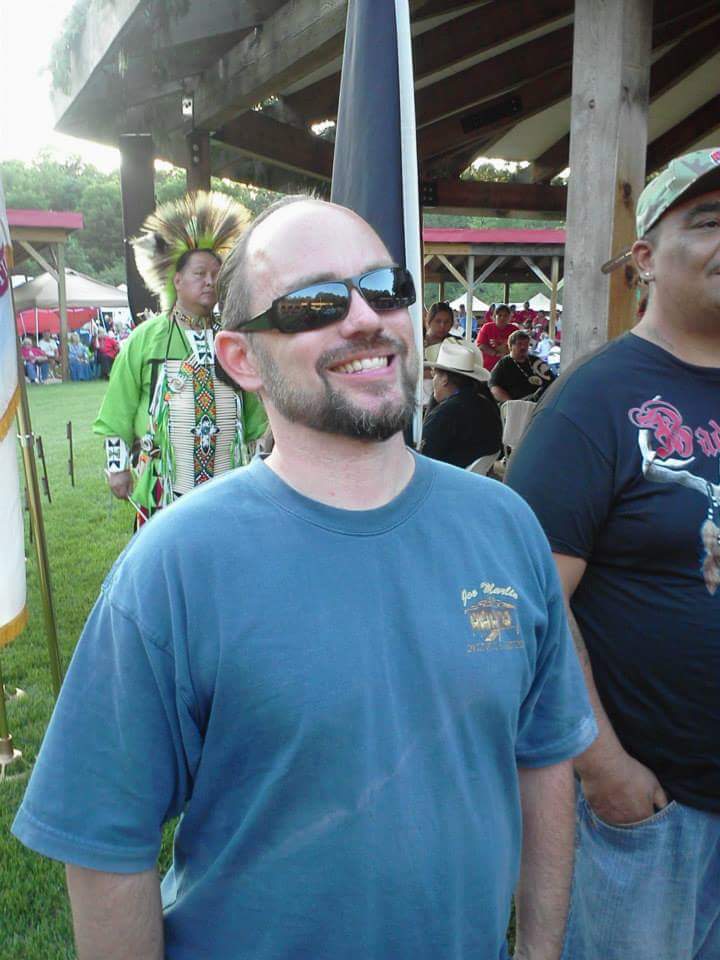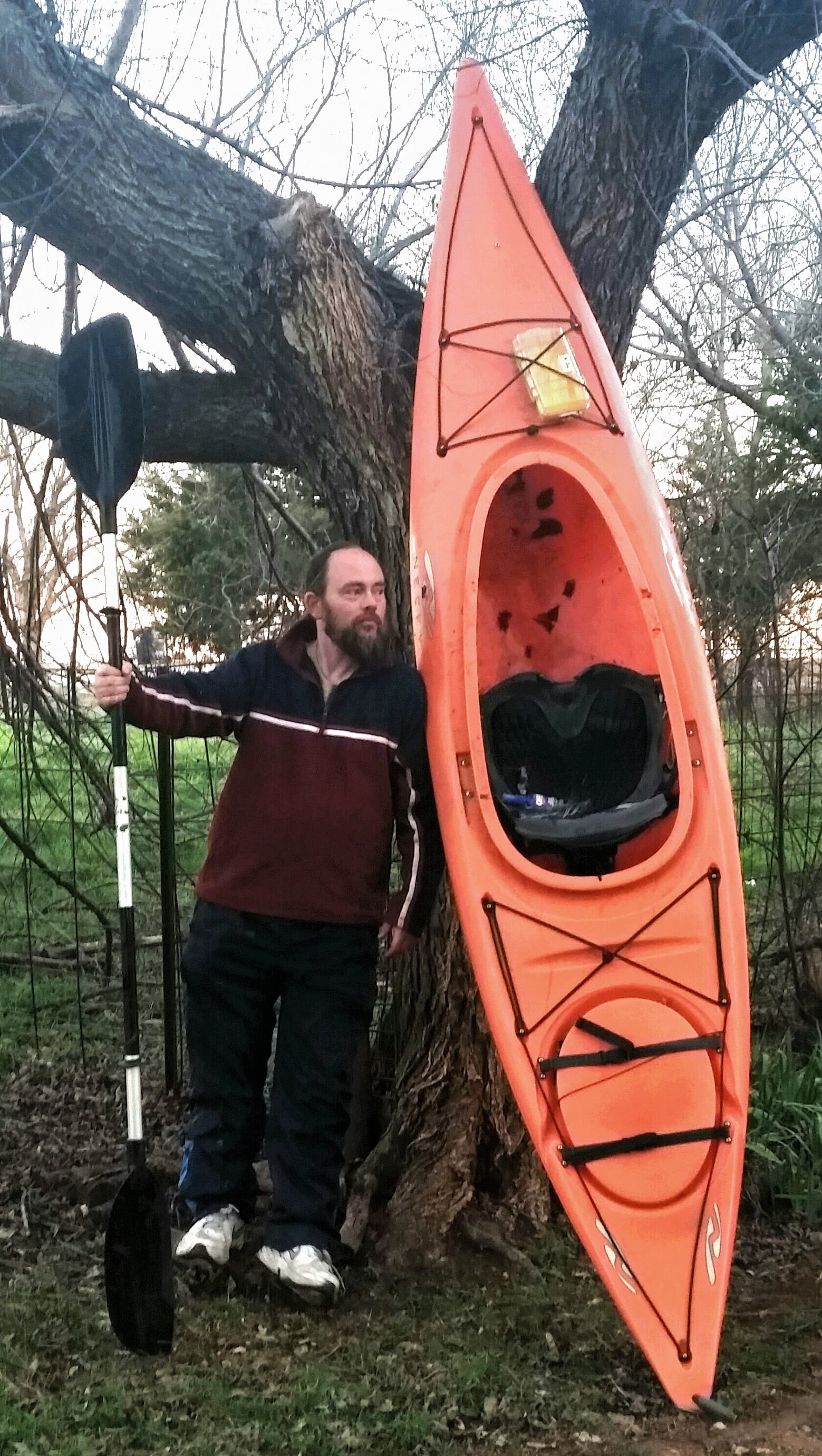In this year’s only competitive legislative race, Samuel Navarre will be challenging incumbent Bobbi Bowden in District 13. Sam answered some questions about himself, his upcoming campaign and plans that he would focus on if successful.
 Where are you from?
Where are you from?
“Ahau, Sam Navarre ndezhnekas miné Whitebead, Okla. édayan, nesh je nekmuk
shena odé Oklahoma-kik wjebyan.”
“Translated, I am Sam Navarre, from Whitebead, Okla., but all over this Oklahoma land I am from. I graduated high school in Pauls Valley, went to college in Chickasha and lived in Tecumseh and Bethel Acres while working for the Tribe. So for me, home is Indian Country.”
What family are you from?
“As my name implies, I belong to the Navarre family of the Citizen Potawatomi. Our Potawatomi heritage comes from Kis-naw-kwé, daughter of the Great War leader Waubensee, who married Pierre Navarre, the first non-Native man to build a home among the Potawatomi of the St. Joseph’s River Band in what is now called south Bend, Ind. He built this cabin for Kis-naw-kwé in 1820, the year their first child was born.”
“This son was Monguago, also known as Peter Navarre, who married Ellen Pagé, an Odawa descendant of Pontiac. So I am Potawatomi and Odawa through my Native lineage, though I am also related to the Anderson family through a non-Native great-grandmother.”
What do I do for a living?
“I work at Turner Falls Park as weekend facilities supervisor and build custom cedar boxes for feathers and regalia while working with my father during the week.”
Did you grow up in a traditional family? If not, how did you reconnect with the Tribe?
“I did not grow up in what many would consider a traditionally Potawatomi home. My mom took me to church when she could catch me on Sundays and I grew up with no (Potawatomi) language in my house.”
“But when we would go to Harrah, Okla. to visit my dad’s side of the family, my grandfather would insult us all in Potawatomi, though I didn’t realize it at the time, and tell us stories about our ancestors. I always grew up being told I was Potawatomi, even before the rolls opened, and I have always been proud of this heritage.”
“After graduating college with a Bachelor’s Degree in Native American Studies, I decided the best way to reconnect with my people was to work for Citizen Potawatomi Nation. In the eight years I worked for our Tribe, I held positions with departments like employment and training, Tribal Rolls and our language department. I even spent a little while as a key tech at the little casino.”
“While the language department is the job I am most known for, helping kids find a job to better their future was the most rewarding, and my best work came in the Tribal Rolls Department. With a little hard work and a lot of arguing, we increased the number of students funded from less than 400 to more than 1,150 during my time there.”
“I chose to work for the people as my way of reconnecting with the Tribe, and working there gave me an opportunity to help thousands of Potawatomi with hundreds of different situations. For that, I will always be grateful.”
Why are you running for District 13?
“I still receive phone calls on an almost daily basis for help with genealogy, language and available services. You name it and I’ve talked with someone about it.”
“But I know I do not have the resources available to do the greatest amount of help. That’s why I’ve chosen to run for office. This year, I chose District 13 for my campaign. I have helped most of the legislators at one time or another with cultural knowledge for them to share at their regional meetings while I was an employee and have nothing but respect for each of them personally.”
“My decision to run was not based on ‘who to run against.’ It was based on ‘how can I help my people?'”
“It may sound superstitious, but there are 13 moons in a year, and 13 sections on a turtle’s back. In our traditional stories, the Turtle gave his life so that we could build our world on top of him.”
Why is the legislature important?
“The legislator position is important because we now have a representative-styled government. Ideally, the legislator listens to the needs and concerns of the people they represent and go to council to speak for those people who cannot be there. However, our Tribe’s employees handle a large amount of those basic needs and concerns in their daily work. So what the legislator position has become is the person responsible for reporting back to the people what decisions are being made by the Tribal government and how these decisions will benefit us all. I can’t say that’s the way it is working, I’m just saying that’s the way I would handle the responsibility.”
What are some specific issues you’ll work on if elected?
“I have several ideas to introduce new services or improve on current ones, but the two I hold most dear to my heart are elevated educational assistance to students seeking degrees that directly improve the lives of Natives.”
“For example, if you are studying to be a nurse, become a diabetes technician working for an Indian Health Service facility and the Tribe will help with a one time, interest free loan for your graduate studies to become a doctor.”
“I would like to see the Tribe develop cultural studies programs to help our members across the country as well as at home. One weekend a year is not all it takes to learn your culture. Some folks like to celebrate their heritage every day, and it would be easy to create this for the people.”
“The second thing I am passionate about is health benefits for tTribal members born with physical and mental handicaps and their families. The number one responsibility of any leader is to take care of those who need help the most. No one asks to be born with a handicap, and in addition to that, the cost of the needs of these kids is unending. Surely we can allocate funding to help these families who need it the most.”
Is there anything else you would like to add?
“My goal as legislator would be to improve the communication between our government and the people in order to make us a stronger and more knowledgeable Tribe. I will work for the people.”
“We all know that in the world today, you must play the white man’s game if you want to win at it. I can play that game, but I choose to live as Neshnabé. Every day I walk into the world, I walk into a Potawatomi world.”
“Our government needs a Native influence; it needs someone to keep us tied to our culture while making improvements as we try to advance in this white man’s game world. In my years as an employee, I fought for everything I could to encourage more Native inspired ideas and practices. If a time comes when we have no respect for Native thought and no memory of the importance of Native tradition in the minds of our positions of leadership, how much longer until everything we are that is Native is no longer respected and forgotten?”
“Keep those fires burning and vote for what you want for our future.”
